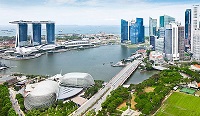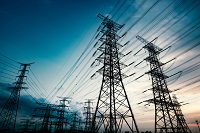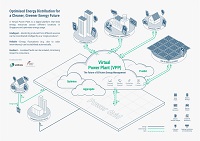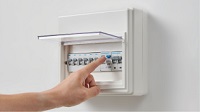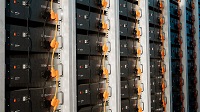For more information, please refer to:
- Commissioned in six months, the Sembcorp Energy Storage System (ESS) is Southeast Asia’s largest ESS and is the fastest in the world of its size to be deployed.
- The utility-scale ESS will support active management of electricity supply and demand for grid stability.
Singapore, February 2, 2023 – Sembcorp Industries (Sembcorp) and the Energy Market Authority (EMA) today officially opened the Sembcorp Energy Storage System (ESS). The Sembcorp ESS is Southeast Asia’s largest ESS and spans across two hectares of land in the Banyan and Sakra region on Jurong Island. Commissioned in six months[1], the facility started operations in December 2022 and is the fastest in the world of its size to be deployed[2].
The event was officiated by Guest of Honour, Minister for Manpower and Second Minister for Trade and Industry Dr Tan See Leng; together with Chief Executive of EMA, Mr Ngiam Shih Chun, and CEO, Singapore & Southeast Asia of Sembcorp Industries, Mr Koh Chiap Khiong.
The utility-scale ESS has a maximum storage capacity of 285 megawatt hour (MWh), and can meet the electricity needs of around 24,000 four-room HDB households[3] for one day, in a single discharge. Its rapid response time to store and supply power in milliseconds is essential in mitigating solar intermittency caused by changing weather conditions in Singapore’s tropical climate. It can also provide reserves to the power grid, which frees up power generation plants to generate more electricity to meet demand, when needed.
Mr Ngiam Shih Chun, Chief Executive of the Energy Market Authority, said: “Energy Storage Systems (ESS) such as the Sembcorp ESS will play a significant part in supporting Singapore’s transition towards cleaner energy sources. This large-scale ESS marks the achievement of Singapore’s 200MWh energy storage target ahead of time. It will complement our efforts to maximise solar adoption by storing and delivering energy given the intermittent nature of solar power. The ESS will also enhance our power grid stability and resilience by managing mismatches between electricity demand and supply.”
Mr Wong Kim Yin, Group President & CEO of Sembcorp Industries, said: “ESS is rapidly growing in demand, to support power system reliability, especially for the integration of intermittent renewable energy. Sembcorp already operates one of the largest fleets of ESS in the UK. This 285MWh ESS is the largest in Southeast Asia. At 709MWh, Sembcorp is now one of Asia’s largest and fastest-growing ESS operators with strong technical capabilities.”
Fast response batteries to maintain grid reliability
The Sembcorp ESS is an integrated system comprising more than 800 large-scale battery units. It uses lithium iron phosphate batteries with high energy density, fast response time and high round-trip efficiency to maximise energy storage, making them suitable for maintaining grid stability. A central control system manages the batteries’ charge and discharge cycles according to the grid’s supply and demand. The integrated system also includes the liquid cooling systems or built-in air conditioning systems to maintain optimal operating temperatures. Live monitoring through extensive use of intelligent sensors, security cameras and dashboards tracks the key performance indicators to ensure safe, reliable and optimal performance. Please refer to Annex A for details on technological features built into the ESS and Annex B for photos of the Sembcorp ESS.
EMA’s Accelerating Energy Storage for Singapore (ACCESS) programme facilitates ESS adoption in Singapore by promoting use cases and business models with industry partners and other government agencies. For more information, please visit this page.
- End -
Annex A – Details of the Sembcorp ESS project
Annex B – Photos of the Sembcorp ESS
[1] "Sembcorp Successfully Commissions Southeast Asia’s largest Energy Storage System ", December 23, 2022.
[2] Based on independent assurance provider DNV’s global database of 4,210 ESS projects totalling 32GWh and publicly available information as of January 5, 2023 for a comparable size utility-scale ESS (same or higher rating and same design).
[3] Based on the average household electricity consumption of a 4-room HDB household in 2019.
